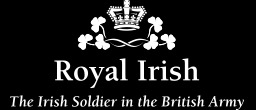Warrant Officer Moody, Royal Irish Fusiliers

|
| W.O. Moody |
Warrant Officer Moody served with the Royal Irish Fusiliers and Parachute Regiment in Italy, Germany and France during World War Two. He enlisted in the Australian Regular Army in February 1952. After service as a National Service instructor and as a member of the Regular Army Cadre staff of the Papua New Guinea Volunteer Rifles, he became an instructor with School cadet units before joining the Australian Army Training Team Vietnam on 3 July 1964. Until December 1964, he was a Training Adviser at the Dong Da National Training Centre and in January 1965, he was assigned as an Assistant Adviser to the 51st Regiment, Army of the Republic of Vietnam. In this capacity, he took part in numerous operations, consistently displaying a very high standard of military ability, leadership and courage. One action that WO Moody would remember was the action which took place at Ba Gia.
During the late afternoon of 29 May 1965, the Intelligence and Reconnaissance Company of the 51st Regiment, including Warrant Officer Moody, was airlanded at Ba Gia Outpost as a reaction force to oppose a determined and savage attack by an estimated Viet Cong main force Battalion. At this critical stage, the garrison, together with some remnants of 1st Battalion, 51st Regiment, which had been almost completely destroyed about 4,000 metres east of Ba Gia on the morning of 29 May, was completely demoralised, defences were unmanned and wounded and dead left without attention or evacuation. Using his previous knowledge of this area, Warrant Officer Moody took the unit commander around the perimeter, and quickly identified existing minefields and defensive posts. As night fell, and under continuous 60mm and 81mm mortar fire, he personally rallied the Vietnamese troops and organised an effective defence.
During the late afternoon of 30 May, the enemy began to attack in strength. With complete disregard for his own safety, Warrant Officer Moody moved to an exposed position from which he could observe the Viet Cong, and, while under mortar fire, directed friendly aircraft onto the Viet Cong. As a direct result an estimated 200 casualties were inflicted, and the attack repulsed.






